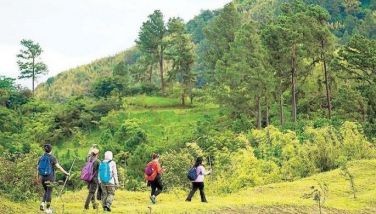New normal, new solutions
Typhoon Marce (international name Yinxing) has entered the Philippine Area of Responsibility and is projected to follow a similar path as Typhoons Leon (Kong-Rey) and Kristine (Trami). The state weather bureau, PAGASA, advises residents along Marce’s potential path to prepare in advance, as the typhoon’s windfield may bring strong gusts and heavy rainfall.
Although the country is no stranger to typhoons, this increased frequency of severe weather events, such as storms bringing torrential rains and gusty winds, may well be the new normal, brought about by climate change. This reality serves as a stark reminder of the need to recalibrate disaster preparedness and response protocols to better withstand the new threats that come with it.
Data from the 2023 Disaster Risk Index of the Asian Development Bank (ADB) indicates that the Philippines is the most vulnerable to natural disasters – a position that highlights the pressing need to make communities more adaptive and resilient to the impact of climate change. According to estimates by the ADB, the Philippines can incur up to P177 billion in losses per year due to typhoons and earthquakes.
“The Philippines faces some of the highest disaster risk levels in the world, and these are projected to intensify as the climate changes,” the ADB states, noting that “without effective adaptation and disaster risk reduction, climate change is likely to exacerbate high existing levels of income and wealth inequality; poverty alleviation progress will be slowed.”
Even more concerning are secondary disasters that accompany typhoons, including severe flooding and landslides. These are becoming more and more common across the country, and not all communities are equipped with the necessary resources to properly respond to these challenges. This often results in an unending cycle of recovery and rebuilding for many Filipinos, which hampers economic growth on a larger scale.
These severe weather events expose gaps in our disaster response protocols, and only highlight the pressing need for an enhanced multi-sectoral approach to improve the resiliency and adaptability of our communities.
The impact of severe weather events is expected to intensify in the medium and/or long term, emphasizing the urgent need for concerted action to address climate change. The recent devastation caused by storms Kristine and Leon and the expected onslaught of Marce provide a preview of this and should serve as a wake-up call for all to act now.
In this context, I truly believe that the private sector has the capability and resources to significantly boost disaster preparedness and support climate action. Partnerships between the government and the private sector can facilitate the sharing of expertise and resources to build the resiliency of local communities and make them more adaptive and resilient to climate change.
Efforts to reduce carbon footprints and promote green solutions play a significant role in the greater effort to promote sustainability and combat climate change.
Private corporations can help build the Philippines’ resilience to climate change by reducing greenhouse gas emissions and adopting sustainable practices, which in effect enhance corporate climate responsibility.
Such efforts include driving major investments toward green technology projects that help mitigate the impact of climate change and, at the same time, promote the well-being of local communities, especially the most vulnerable.
Moreover, the adoption of green solutions should be included in the corporate social responsibility programs of companies. For example, One Meralco Foundation’s “One For Trees” environmental program aims to help preserve Philippine forests through reforestation efforts. By doing this, there is a sense of shared responsibility to protect the most vulnerable of our communities from the harmful impact of climate change.
Another route that the private sector can take is to drive investment in crucial projects for climate adaptability, including flood control in urban areas and irrigation systems in rural areas. These crucial and targeted investments have the potential to significantly reduce the impact of climate hazards on communities.
As Filipinos face this new normal of increasingly severe weather events, let us be reminded that addressing climate change is a shared responsibility. It is up to all of us to champion a sustainable future for the next generation of Filipinos.
- Latest
- Trending





























